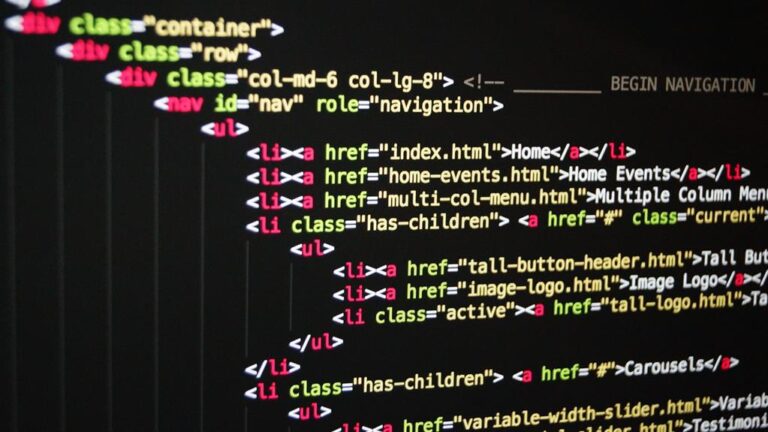As I sit by my candlelight, drafting missives in an age of LEDs, I'm struck by the relentless march of automation, reshaping the future of labor. I've seen the writing on the digital wall and I'm here to share my compass for charting these uncharted waters. My journey's gleaned eight crucial tips that'll help you navigate the impact of automation on future jobs, safeguarding your livelihood against the tides of change. We'll delve into how to assess and adapt your skills, why embracing lifelong learning isn't just a platitude but a survival tactic, and which industries promise growth amidst the mechanized takeover. Together, let's enhance our digital literacy, polish those ever-valuable soft skills, and consider the liberating potential of entrepreneurial ventures. Staying informed and investing in continuous education are our beacons. Let's empower ourselves to thrive in an automated world.
Assessing Skills and Adaptability
I've realized that inventorying my current skill set is the first step in staying relevant in an ever-evolving job market influenced by automation. The landscape is changing rapidly and clinging to outdated abilities won't cut it. Instead, I've embraced the concept of skill mapping, a strategic approach that allows me to visualize and adapt my proficiencies to align with future demands.
Skill mapping isn't just a buzzword for me; it's about creating a blueprint for career flexibility. It's about identifying the core skills that are transferable across various industries and roles. I recognize that my capacity to learn and unlearn is as crucial as the technical know-how I possess. With each new project, I seek opportunities to stretch my capabilities and cross-pollinate my expertise.
When I look at automation, I don't see a threat; I see an ally that pushes me to amplify my uniquely human traits – creativity, empathy, and problem-solving. These are the areas that machines can't replicate (yet), and they're where I can truly differentiate myself.
I've adopted an innovative mindset, one that's always on the lookout for ways to redefine my value in the work ecosystem. My goal is to remain agile, to pivot when necessary, and to anticipate the tides of change, riding them to new horizons. For me, the pursuit of liberation from the mundane and the obsolete isn't just a desire but a mission. By assessing and expanding my skills, I'm not just preparing for the future; I'm actively shaping it.
Embracing Lifelong Learning
My journey's next step in staying ahead of automation is to commit to lifelong learning, ensuring I continuously acquire new skills and knowledge. This isn't just about staying relevant; it's about fostering a sense of empowerment and adaptability in a world where the only constant is change. Skill diversification is no longer a luxury—it's a necessity. The days of learning a single trade and riding it out until retirement are long gone. Career resilience now hinges on our ability to learn, unlearn, and relearn.
Here's my action plan for embracing lifelong learning:
- Stay Curious: Let my passion drive my learning journey, diving into subjects that fascinate me and challenge my understanding.
- Strategically Upskill: Identify skills that complement my current expertise, and those that will be in high demand in a future influenced by automation.
- Network with Purpose: Connect with visionaries and innovators who also value continuous growth, sharing insights and opportunities.
- Reflect and Adapt: Regularly assess my progress and pivot when necessary, ensuring my learning aligns with the evolving job market.
I'm not just preparing to survive the wave of automation—I'm gearing up to ride it. By investing in my education, I'm liberating myself from the fear of obsolescence. I'm choosing to be proactive, not reactive. This pursuit of knowledge isn't a race; it's a marathon without a finish line. And I'm lacing up my running shoes, ready to embrace the long but rewarding road ahead. Here's to the journey of lifelong learning!
Identifying Growth Industries
As I commit to lifelong learning, it's crucial to pinpoint industries poised for growth despite the rise of automation. The key is not just to survive the wave of technological advancement but to ride its crest toward career opportunities that promise a vibrant future. Market research shines a light on sectors where innovation is not just a buzzword but a tangible trend pushing the boundaries of what's possible.
Healthcare, for example, is an industry where human touch and empathy are irreplaceable, and yet, it benefits immensely from sector innovation, like AI diagnostics. Renewable energy, too, is burgeoning, as sustainability becomes not just a choice but an imperative. Here, automation supports the cause, but strategic human oversight steers its course.
In tech, especially cybersecurity, the threat landscape evolves so rapidly that automated systems can't keep pace without insightful human intervention. Creative fields like marketing, content creation, and design continually demand a human touch to resonate with ever-changing consumer preferences.
I'm strategically targeting these industries, not just for their growth potential but for their resilience against automation. They embody the kind of liberation that I, and many others, seek—a liberation not from work, but from the fear of obsolescence. By aligning my skills with these sectors, I'm crafting a career trajectory that not only withstands the test of technological upheaval but also thrives on the innovation it brings.
Enhancing Digital Literacy
As we confront the tide of automation, I recognize that updating my digital skillset is no longer optional; it's a strategic imperative. Embracing continuous learning is the key to staying relevant and competitive in a job market that's constantly being reshaped by technological advances. I'm committed to proactively refining my digital literacy to ensure I'm not just keeping up, but setting the pace for future innovation.
Required Skills Update
I've recognized that one critical step in adapting to automation is updating my digital literacy skills to stay relevant in the evolving job market. To foster skill resilience and career flexibility, I'm strategically enhancing my capabilities.
- Embrace Continuous Learning: Stay ahead, be adaptive, and resilient to change.
- Cultivate Data Fluency: Harness the power of data analysis for informed decision-making.
- Master Tech Tools: Equip yourself with cutting-edge software proficiency.
- Develop a Digital Mindset: Innovate and think critically in the digital realm.
Continuous Learning Importance
Adaptability is key, and I'm committing to a regimen of continuous learning to enhance my digital literacy. As automation reshapes our job landscape, I understand that skill flexibility isn't just a buzzword; it's my ticket to remaining relevant and empowered in a tech-driven world. I'm diving headfirst into learning communities, spaces where innovation and knowledge-sharing flourish. There, I can collaborate with others who are equally eager to master the digital tools that will define our future. It's about being proactive, crafting a personal learning ecosystem that's as dynamic as the technologies I'm aiming to master. This isn't just upskilling; it's a strategic embrace of perpetual growth, ensuring I'm not just keeping up but setting the pace for what comes next.
Cultivating Soft Skills
As we pivot to the human side of the workforce equation, I recognize that emotional intelligence has become a non-negotiable asset. It's clear that machines can't replicate the nuanced interpersonal skills that I bring to the table, which positions creative problem-solving at the forefront of indispensable abilities. Harnessing these soft skills ensures that I remain a vital part of the evolving job landscape, no matter how advanced automation becomes.
Emotional Intelligence Importance
My emotional intelligence toolkit has become an indispensable asset in the age of automation, as machines can't emulate the nuanced interpersonal skills that human jobs increasingly require. With the rise of automation, I've doubled down on my emotional acumen, ensuring I stand out in a robot-saturated workforce. Here's how I've strengthened my emotional intelligence:
- Regular resilience training to bounce back from setbacks faster.
- Daily empathy exercises to better connect with colleagues and clients.
- Continual self-reflection to understand my emotions and responses.
- Active listening to truly hear and address the concerns of others.
These strategies aren't just buzzwords; they're my liberation from the fear of being replaced by machines. They're about staying relevant, innovative, and above all, human.
Creative Problem-Solving Emphasis
Building on my emotional intelligence, I've also honed my creative problem-solving abilities, recognizing that this soft skill is vital in a workspace where automation handles routine tasks. I'm constantly refining my innovative thinking to stay ahead, ensuring that I'm irreplaceable in an era where algorithms and machines take over predictable processes. Solution brainstorming has become second nature to me, as I seek to navigate and shape the future work landscape.
Here's a snapshot of my strategy in a table:
| Creative Challenge | Innovative Approach | Strategic Outcome |
|---|---|---|
| Redundant Tasks | Automate and Refocus | Enhanced Creativity |
| Complex Issues | Solution Brainstorming | Robust Solutions |
| Skill Gaps | Continuous Learning | Career Adaptability |
| Uncertainty | Embracing Change | Business Agility |
This framework empowers me to not just survive but thrive in an automated future.
Exploring Entrepreneurial Opportunities
I've identified several entrepreneurial opportunities that arise directly from the automation revolution in various industries. The landscape is transforming, and it's a fertile ground for nimble, forward-thinking entrepreneurs to carve out their own space. By focusing on market niching, I can create highly specialized services and products that meet the unique demands automation brings. Similarly, engaging in startup incubation can help me foster innovation and collaboration, ensuring that my business stays on the cutting edge of technological advancement.
Here are four strategic approaches I am considering to capitalize on these opportunities:
- Developing Custom Automation Solutions: I aim to offer bespoke automation systems tailored to niche markets that are yet untouched by larger corporations. This personal touch could resonate deeply with clients who feel overlooked by the one-size-fits-all solutions currently in the market.
- Offering Automation Integration Services: Many businesses struggle with integrating new technologies into their existing operations. I see a chance to provide expert consultancy and support, easing their transition and empowering them to embrace automation confidently.
- Creating Educational Platforms: As automation becomes more prevalent, there's a growing need for skilled professionals. I envision establishing an educational platform that teaches the necessary skills to thrive in an automated world, thus enabling others to find liberation through knowledge.
- Innovating with AI-Driven Analytics: By harnessing the power of artificial intelligence, I could offer predictive analytics services, giving businesses insights that could revolutionize their decision-making processes and set them free from uncertainty.
In this era of rapid change, I'm setting my sights on being at the forefront of entrepreneurial innovation, and I'm excited about the freedom and potential that automation holds for the future.
Staying Informed on AI Developments
Keeping abreast of the latest advancements in AI is crucial for adapting to the ever-evolving job market influenced by automation. As I delve into the transformational world of artificial intelligence, I recognize that strategic foresight is my ally. It's about being proactive, not reactive. I'm committed to understanding how AI ethics shape our society and the implications of technological surveillance on our freedom.
I innovate my learning process by attending webinars, participating in tech forums, and analyzing case studies. The landscape of AI is dynamic, and staying updated means I'm always at the cusp of cutting-edge methods and ideologies. It's not just about the chase for efficiency; it's about ensuring that the tools of tomorrow align with the ideals of liberty and equity that we cherish today. AI should not become a tool that shackles us under the guise of advancement.
Here's a table that resonates with the emotional core of my journey in understanding AI:
| Emotion | Cause | Response |
|---|---|---|
| Curiosity | AI Developments | Research and Learn |
| Caution | AI Ethics | Advocate for Standards |
| Defiance | Technological Surveillance | Promote Transparency |
This table isn't just a snapshot; it's a reflection of my resolve to embrace change while standing firm on principles that prioritize human dignity over unbridled technological expansion. I'm looking at AI through the lens of liberation. I'm determined to be part of a future where we harness AI's potential without compromising our intrinsic values. It's a balancing act, and I'm ready to play my part. As AI reshapes our world, I'm not just a witness; I'm an active participant steering it towards a future that liberates rather than constrains.
Investing in Continuous Education
Amidst the rise of AI, I'm investing in continuous education to stay relevant and competitive in the job market of tomorrow. To secure my place in an ever-evolving landscape where automation is ubiquitous, I've realized that learning cannot be a one-time event but an ongoing process. It's not just about acquiring knowledge; it's about developing a mindset of career resilience that can weather the storms of technological change.
To evoke the emotional journey of this commitment, consider the following:
- Empowerment: With each new skill I master, I feel a surge of empowerment. Knowledge liberates me from the fear of obsolescence and fuels my confidence to tackle future challenges.
- Growth: I view every learning opportunity as a stepping stone towards personal and professional growth. It's thrilling to watch the expansion of my capabilities and the broadening of my horizons.
- Adaptability: Embracing educational diversity has made me more adaptable. Like a chameleon, I learn to blend into various roles and industries, making me an asset in this fast-paced world.
- Passion: There's an exhilarating passion that comes with continuous learning. It's the spark that ignites innovation and drives me to be at the forefront of my field.
In a style that reflects strategic thinking, I approach continuous education with an innovative spirit. By diversifying my knowledge portfolio and staying abreast of new developments, I ensure that my skills are not just current but also versatile and transferable. For those seeking liberation from the constraints of a monolithic career path, investing in continuous education is the key to unlocking endless possibilities.
Frequently Asked Questions
How Can I Negotiate With My Employer to Support My Upskilling in the Face of Automation?
I'm strategizing on how to discuss upskilling partnerships with my boss. In our automation negotiations, I'll emphasize mutual benefits, like staying competitive and innovative. I'll suggest flexible options for training that won't disrupt my work. My goal's to secure support for my growth, ensuring I'm indispensable despite advancing tech. It's about crafting a future-proof career that liberates both me and the company from the constraints of a rapidly changing job landscape.
What Are Some Effective Coping Strategies for the Emotional and Psychological Stress Caused by Job Displacement Due to Automation?
Facing job displacement's emotional toll, I'm building emotional resilience through mindfulness and therapy. I'm leaning into my support networks, knowing it's okay to seek help. This strategic approach isn't about just bouncing back, it's about innovating my mindset to adapt and thrive. For those seeking liberation from these stresses, remember that our value isn't defined by our jobs. We're adaptable, and with the right strategies, we'll navigate these changes.
How Does Government Policy Influence the Impact of Automation on Jobs, and What Can I Do to Advocate for Supportive Policies?
Like a modern David against the Goliath of automation, I recognize government policy shapes our workforce's future. Staying informed on policy monitoring is key; I'm honing my advocacy tactics to influence decisions. By pushing for education and retraining programs, I'm advocating for a safety net for those displaced. It's not just about adapting—it's about reshaping the system for everyone's benefit. I'm committed to being part of the strategic, innovative change needed.
Can Automation Create Entirely New Fields of Work, and How Can I Position Myself to Enter These Emerging Fields?
Absolutely, automation can spark new industries and I'm keen to dive in. To gear up, I'm focusing on future education and seizing innovation opportunities. I'm strategizing to stay ahead, learning tech skills that'll be in demand. I'm also networking with forward-thinkers and advocating for policy that fosters innovation. I'm all about embracing change to liberate my career from traditional paths and thrive in this new, automated landscape.
How Will Automation Impact the Gig Economy and Freelance Work, and What Strategies Can Freelancers Use to Stay Competitive?
Automation's reshaping the gig economy, and I'm adapting by doubling down on digital branding and networking tactics. To stay ahead, I'm crafting a unique online presence and connecting with industry leaders, ensuring I'm irreplaceable. I'm always learning, innovating my skills to offer what machines can't. I see this tech wave as a chance for liberation, not a threat. It's about leveraging change to carve out my niche.



